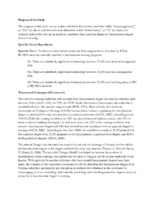Accentuating the “I’s” and eliminating the “D’s”: Inducements and discouragements for students transitioning from associate degree to baccalaureate degree nursing programs: A national review
View File(s)
- Author(s)
- Details
-
Karen L. Gorton, PhD, RN, MS, FNP, email: karen dot gortonucdenver dot edu; member of STTI, Alpha Kappa-at-Large Chapter; Kathleen B. LaSala, PhD, RN, PNP, CNE, email : LASALA at mailbox dot sc dot edu, member of STTI Rho Pi and Alpha Xi Chapters
- Sigma Affiliation
- Alpha Kappa at-Large
- Rho Pi
Visitor Statistics
Visits vs Downloads
Visitors - World Map
Top Visiting Countries
| Country | Visits |
|---|
Top Visiting Cities
| City | Visits |
|---|
Visits (last 6 months)
Downloads (last 6 months)
Popular Works for Gorton, Karen L. by View
| Title | Page Views |
|---|
Popular Works for Gorton, Karen L. by Download
| Title | Downloads |
|---|
View Citations
Citations
To improve the health-care system, we must address the current shortage of highly qualified nurses; to address this shortage of highly qualified nurses, we must elevate more nurses to the baccalaureate level of education (IOM, 2011). Accomplishing these goals requires increased access—and seamless progression—to higher educational levels. The Carnegie Foundation report, Educating Nurses: A Call for Radical Transformation, recommends creating a nursing-education continuum between community colleges and baccalaureate programs that is “feasible, fair, and affordable for all nursing students” (Benner, Sutphen, Leonard, & Day, 2010). This study expanded on a small pilot study that evaluated barriers and enhancement factors for students transitioning from their associate degree in nursing to a baccalaureate degree program. Students were surveyed using an electronic research tool that offers easy access to all accredited RN-BS/BSN programs across the nation. This national study did provide sound, nationwide data from RN-BS/BSN students. By better understanding the barriers at all levels, nursing-education and nursing-practice leaders can begin to design programs, delivery models, advising systems, and other areas of support that help overcome obstacles to success. At the same time, identified enhancement factors can be highlighted and extended to those that need them the most.
The authors also presented this topic as a poster presentation at the 2015 STTI Biennial Convention. To view that associated work in the Henderson Repository please click here.
This study evaluated the actual barriers (hereafter called “discouragements,” or “D’s” for short) and enhancements (hereafter called “inducements,” or “I’s” for short) for students nationwide who are in academic transition from associate-degree to baccalaureate-degree status in nursing.
Karen Gorton and Kathleen LaSala are recipients of a STTI/Chamberlain College of Nursing Education Research Grant.
The Sigma Theta Tau International grant application that funded this research, in whole or in part, was completed by the applicant and peer-reviewed prior to the award of the STTI grant. No further peer-review has taken place upon the completion of the STTI grant final report and its appearance in this repository.
| Type | Report |
| Acquisition | Self-submission |
| Review Type | None: Sigma Grant Recipient Report |
| Format | Text-based Document |
| Evidence Level | Other |
| Research Approach | Pilot/Exploratory Study |
| Keywords | RN to BS/BSN; Barriers; Encouragement; Enhancement; National Study; Success |
| CINAHL Subject(s) | Education, Post-RN; Students, Post-RN; Motivation |
| MESH Subject(s) | Education, Nursing, Baccalaureate |
| MESH Subject(s) | Education, Nursing, Baccalaureate |
| Name | Sigma Theta Tau International Biennial Convention |
| Host | Sigman Theta Tau International |
| Location | Las Vegas, Nevada, USA |
| Date | 2015 |
All rights reserved by the author(s) and/or publisher(s) listed in this item record unless relinquished in whole or part by a rights notation or a Creative Commons License present in this item record.
All permission requests should be directed accordingly and not to the Sigma Repository.
All submitting authors or publishers have affirmed that when using material in their work where they do not own copyright, they have obtained permission of the copyright holder prior to submission and the rights holder has been acknowledged as necessary.
License
The following license files are associated with this item:
Related items
Showing items related by title, author, creator and subjects.
-
Inducements and discouragements for students transitioning from associate degree to baccalaureate degree in nursing: A national study
Gorton, Karen L.; LaSala, Kathleen B. (2016-03-21)Session presented on Monday, November 9, 2015 and Tuesday, November 10, 2015: The call to educate more nurses at the baccalaureate level of education has been made (IOM, 2011). Accomplishing this requires innovative access ... -
The relationship between selected variables and the National Council Licensure Examination for Registered Nurses: A comparative analysis of pass/fail performance for traditional and second-degree baccalaureate students
Englert, Nadine CozzoThis retrospective study was conducted to examine the relationship between selected variables and performance on the National Council Licensure Examination for Registered Nurses (NCLEX-RN). Data were collected from one ... -
National Council Licensure Examination for Registered Nurses (NCLEX-RN®) success: Perceptions of accelerated second-degree Bachelor of Science in nursing students
Brzoza, Vicki L.Most of the 50 states in the United States (U.S.) will experience a significant nursing shortage by the year 2030. Research finds that a bachelor of science in nursing (BSN) workforce is associated with better outcomes, ... -
A comparative analysis of demographic and academic characteristics and NCLEX-RN passing among urban and rural campus students in a Midwest associate degree nursing program
Nacos-Burds, Kathleen J.A retrospective study was initiated to determine: (1) the predictive relationship between demographic and academic variables and NCLEX-RN success; and (2) if there were significant differences between urban and rural nursing ... -
Predicting success for nontraditional students in an evening/weekend associate degree in nursing program
Canillas-Dufau, Tori L.The purpose of this research was to, (a) identify and describe the nontraditional population of adult learners served in the Evening/Weekend Associate Degree in Nursing (ADN) Program at Mount St. Mary's College, and, ...






